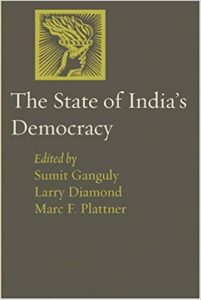The return of the Rajapaksa brothers to power in Sri Lanka highlights a broader and more alarming trend: the rise of illiberal democracy in South Asia as Sri Lanka joins India and Bangladesh in particular in backing nationalist strongman leaders with scant concern for the niceties of constitutional rule, according to James Crabtree, Associate Fellow in the Asia-Pacific Program at Chatham House, the London-based foreign policy think-tank.
South Asia’s direction should at least be surprising, he writes in an article originally published in the Nikkei Asian Review. As recently as 2013, The New York Times wrote a celebratory article headlined ‘A Region Totters Toward Democracy’, noting a democratic upsurge in a part of the world that, beyond India and Sri Lanka, had historically been ruled by a ‘a grab bag of monarchies, dictatorships and military regimes’. Now the trend is going the other way, with an illiberal democratic turn across South Asia with two main causes, the first being security:
 In Sri Lanka, Gotabaya Rajapaksa won because of his firm record as a military hard-liner. Voters turned to him after the deadly Easter Sunday attacks earlier this year, in which domestic terrorists tied to the Islamic State bombed churches and hotels, leaving more than 200 dead. India’s election in May showed a similar pattern, as Modi won support for his own hard-line stance in the aftermath of military skirmishes with Pakistan and terrorist attacks in the restive region of Kashmir.
In Sri Lanka, Gotabaya Rajapaksa won because of his firm record as a military hard-liner. Voters turned to him after the deadly Easter Sunday attacks earlier this year, in which domestic terrorists tied to the Islamic State bombed churches and hotels, leaving more than 200 dead. India’s election in May showed a similar pattern, as Modi won support for his own hard-line stance in the aftermath of military skirmishes with Pakistan and terrorist attacks in the restive region of Kashmir.- The second factor is a desire for stability, given the way in which political parties with more liberal visions have come sadly to be associated with corruption, drift and inaction. Rajapaksa also won in Sri Lanka because his opponents had for the last five years run a divided and largely do-nothing administration, with little to show on economic reform in particular. RTWT
The region’s democracies should lead the charge for democracy in Asia, a recent National Endowment for Democracy forum was told. But recent developments cast doubt on that prospect.
Centered on the character of Imelda Marcos, THE KINGMAKER (above) examines, with intimate access, the Marcos family’s improbable return to power in the Philippines, reports suggest. The film explores the disturbing legacy of the Marcos regime and chronicles Imelda’s present-day push to help her son, Bongbong, win the vice-presidency. Imelda rewrites her family’s kleptocratic history, replacing it with a narrative of a matriarch’s love for her country. In an age when fake news manipulates elections, Imelda’s comeback story serves as a dark fairy tale.







